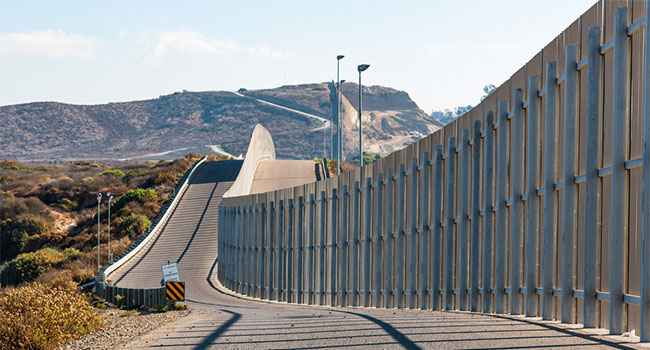
Drug Trade Struggling at the Border During COVID-19 Pandemic
The coronavirus pandemic led U.S. officials to close the Mexico border to nonessential travel, adding another hurdle for the cartels but possibly helping law enforcement.
- By Ralph C. Jensen
- May 04, 2020
COVID-19 has found yet another victim. Though not a small business, and certainly not one that would qualify for a government loan, the illegal drug trade is struggling at the border. Law enforcement isn’t complaining but celebrating having the upper hand.
The coronavirus is creating tough times for drug criminals as borders are closed and causing headaches for supply chains. It is making life easier for law enforcement.
Even drug criminals are having a tough time because of the coronavirus -- as closed borders and severed supply chains spark headaches for smugglers -- but it’s making life easier for the people in charge of catching them. The black market is recording a noticeable impact.
“We’re seeing those disruptions on the dark web. Websites that sell illegal drugs, those websites are either shutting down or they’re delaying deliveries,” said Uttam Dhillon, acting director of the Drug Enforcement Adminstration. “We continue to work with our international, federal, state, local and tribal partners to achieve our mission of ensuring that drugs do not reach the American people and poison our communities.”
Meth and fentanyl sales coming from the Mexican cartels are having struggles because the coronavirus has closed borders and cut off supply chains in China.
Because Wuhan China was supposedly the epicenter of COVID-19, and because the city was on a total lock down, it has been more difficult for drug traffickers to get the chemicals out of the city, and Mexican cartels haven’t been able to get the supply they would like to have.
In New Mexico, DEA agents with the High Intensity Drug Trafficking Areas (HIDTA) program said the shortage has forced cartels to raise prices. The biggest threat was methamphetamine but they’ve seen a big rise in fentanyl and other synthetic opioids.
The coronavirus pandemic led U.S. officials to close the Mexico border to nonessential travel, adding another hurdle for the cartels but possibly helping law enforcement.
CBP officers within the Tucson Field Office’s areas of responsibility have made more arrests at the start of 2020 than in the same time period in 2019. In January 2020, they made 187 narcotic arrests compared to 178 in January 2019. In February 2020, they made 170 arrests compared to 153 in February 2019.
However, after closing the border to nonessential travel, arrests began to fall in March going from 193 arrests in 2019 to 157 in 2020.
“We’re seeing price increases of methamphetamine and, of course, a price increase usually means there’s a decrease in supply, so this may mean that we are actually seeing, as a result of the pandemic, a decrease in the result of the amount of illicit drugs coming into our country,” Dhillon said.
Like other businesses, this slowdown is expected to be only temporary. Analysts have said as long as there’s demand in the United States for these drugs, the cartels will find ways to bring them in.
About the Author
Ralph C. Jensen is the Publisher/Editor in chief of Security Today magazine.